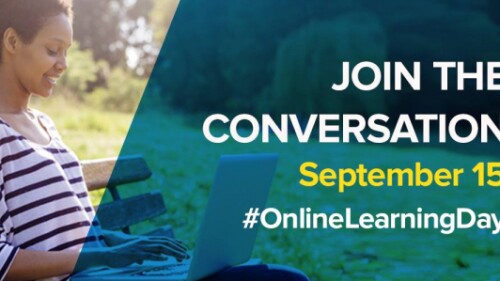Starting an online degree program is an exciting step toward reaching your personal and professional goals. Whether you’re returning to school after a break or beginning your academic journey for the first time, preparation is key.
At Kent State Online, we’re committed to making sure you feel confident and supported from day one. Use this checklist to get organized, set expectations, and start your online program strong.
✅ 1. Confirm Enrollment and Access Your Student Accounts
Before your first class begins:
✔️ Log in to your FlashLine account (your Kent State student portal)
✔️ Check your kent.edu email—this is how instructors and staff will reach you
✔️ Log in to Canvas, your online learning platform
Pro tip: Bookmark your login pages for easy access throughout the semester.
✅ 2. Understand Your Course Schedule and Syllabi
Once your classes are live in Canvas:
✔️ Review each syllabus carefully
✔️ Note important deadlines, exam dates, and participation expectations
✔️ Create a weekly calendar to track assignments and reading
✔️ Reach out to instructors with any early questions
Getting familiar with your course structure early helps prevent surprises later.
✅ 3. Set Up Your Study Environment
Having a dedicated, organized study space can make a big difference:
✔️ Choose a quiet, well-lit area with minimal distractions
✔️ Set up a desk or table with a comfortable chair
✔️ Gather your materials—laptop, charger, notebook, pens, etc.
✔️ Personalize the space to keep you motivated
Tip: Avoid studying from your bed to keep your sleep and work habits separate.
✅ 4. Check Your Tech
Reliable technology is essential for online success:
✔️ Ensure your laptop or desktop meets basic system requirements
✔️ Test your webcam and microphone for virtual meetings
✔️ Update your browser and software
✔️ Set up Microsoft Office 365 (free with your Kent State account)
✔️ Download or bookmark Microsoft Teams, Canvas, and your Kent State email
If you hit a snag, Kent State’s tech support team is ready to help.
✅ 5. Organize Your Time
Time management is one of the most important skills in online learning:
✔️ Create a weekly study schedule
✔️ Use a digital calendar or planner
✔️ Block off dedicated time for readings, lectures, and assignments
✔️ Build in breaks to prevent burnout
Sticking to a routine helps you stay on top of your workload and reduces stress.
✅ 6. Explore Student Support Services
You’re not in this alone. Kent State Online offers a full range of services to help you succeed:
✔️ Academic advising
✔️ Writing and tutoring support
✔️ Career guidance
✔️ Mental health and wellness resources
✔️ 24/7 technical support
Visit Student Experience & Support to see what’s available.
✅ 7. Set Your Goals and Stay Motivated
Before you dive into your coursework, take a moment to reflect:
✔️ Why are you pursuing this degree?
✔️ What do you hope to achieve this year?
✔️ What habits will help you stay focused and motivated?
Write your answers down and revisit them throughout the semester to keep your goals top of mind.
You’re Ready to Begin
Starting an online degree program can feel like a big leap—but with the right tools, mindset, and support, you’re more than ready. At Kent State Online, we’re here to guide you every step of the way.
Take a deep breath, trust the process, and remember: each assignment, discussion, and study session brings you closer to your goals.
Explore Flexible, Career-Focused Online Programs
Ready to get started on your academic journey? Discover how Kent State Online can help you move forward—on your schedule, from anywhere.
Explore our online programs or contact a Kent State Online Admission Coordinator today!









